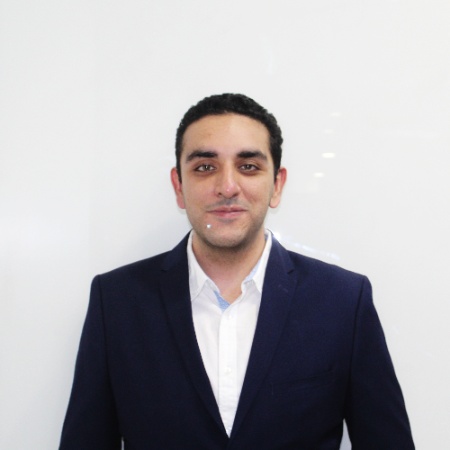Seed Capital
Roundtable Recap: January 18 – The Traction Gap Framework with Bruce Cleveland
During this week’s roundtable, we had as our guest Bruce Cleveland, Founding Partner at Wildcat Venture Partners, one of the early employees at Oracle, as well as Siebel Systems. Bruce is working on a book on The Traction Gap framework that his firm uses in its venture capital practice. He discussed the methodology at this session.
The Lorusso Machine
As for the pitches, Steve Lorusso pitched The Lorusso Machine, an energy generator that costs about $1000 for consumer installations.
You can listen to the recording of this roundtable here:
1Mby1M Virtual Accelerator Investor Forum: With Ken Elefant of Sorenson Ventures (Part 4)
Sramana Mitra: How do you parse the Series A gap that has come about in the market? There’re a lot of early stage, pre Series A investments. In fact, there’s a tremendous segmentation that has started to take place in the pre-series A space right now. There is the friends and family round, but then there are funds that are focused on pre-series A such as pre-seeds, seed, post-seed, pre-series A .
There are micro VCs that are picking certain areas of the pre-series A phase, but then the number of companies that actually get funded in Series A remains relatively constant in the 1,200 to 1,500 range, whereas in the pre-series A, there are 70,000 investments a year. How do you analyze that? >>>
1Mby1M Virtual Accelerator Investor Forum: With Mohit Gulati of ITI Growth Ventures (Part 2)
Sramana Mitra: Yes. Let’s double click on that. Talk about the B2B industry sector. What in B2B is your interest area? There is the global facing B2B SaaS and then there’s the Indian-facing B2B SaaS. There is mid-market B2B. Where, in all those permutations and combinations, is your sweet spot? What is your preference?
Mohit Gulati: One of the sweetest spots that we have looked at is global B2B SaaS. >>>
1Mby1M Virtual Accelerator Investor Forum: With Ken Elefant of Sorenson Ventures (Part 3)
Sramana Mitra: So one of the things that you said, which I found somewhat distinct is that you’re looking for smaller markets and not these markets that most VCs tend to go for. We’re in 2017 and lots of stuff have already been built.
Nowadays, there are not many wide-open opportunities out there, but there are many, many niche opportunities. Some of these businesses need to be built for a small amount of capital. Maybe $1 million to $2 million and sold for $10 million to $15 million. Maybe even smaller. I imagine you’re not interested in these types of investments. >>>
1Mby1M Virtual Accelerator Investor Forum: With Mohit Gulati of ITI Growth Ventures (Part 1)

Responding to a popular request, we are now sharing transcripts of our investor podcast interviews in this new series. The following interview with Mohit Gulati was recorded in December 2017.
Mohit Gulati, Founder and CIO of Altius Ventures, which recently changed their name to ITI Growth Ventures, discusses the Indian startup eco-system.
Sramana Mitra: Tell us your about investing focus. How big is the fund? What size investments are you making? Let’s get you introduced to our audience. >>>
1Mby1M Virtual Accelerator Investor Forum: With Ken Elefant of Sorenson Ventures (Part 2)
Sramana Mitra: What about geography?
Ken Elefant: We’re focused on the United States since we are doing so much in security. We do spend a lot of time in Israel as well. In the past, I have done investments in India, China, Japan, both Western and Eastern Europe. There’s no problem with that. I’ve been involved with companies around the world.
I would say that we do have a proclivity of investing in the United States and in Israel. I’m based in Palo Alto and Sorenson Ventures is based in Palo Alto. Sorenson Capital is based in Salt Lake City. They have really good networks and deal flow from >>>
381st 1Mby1M Entrepreneurship Podcast With William Hsu, Mucker Capital
William Hsu, Co-founder and Partner at Mucker Capital, a Los Angeles based fund that invests largely outside Silicon Valley and follows a more fundamentals oriented approach.
Podcast: Play in new window | Download
Subscribe: Apple Podcasts | Android | Google Play | Stitcher | TuneIn | RSS
1Mby1M Virtual Accelerator Investor Forum: With Ken Elefant of Sorenson Ventures (Part 1)

Responding to a popular request, we are now sharing transcripts of our investor podcast interviews in this new series. The following interview with Ken Elefant was recorded in December 2017.
Ken Elefant, Managing Director at Sorenson Capital, discusses at length the investment thesis of his firm.
Sramana Mitra: So tell us about Sorenson capital. What is the focus of the firm? How big is the fund? What size investments do you make? Let’s get to know the footprint of Sorenson Capital.
Ken Elefant: As you probably know, Sorenson Capital was founded in 2002. We have a little bit over a billion dollars under >>>
